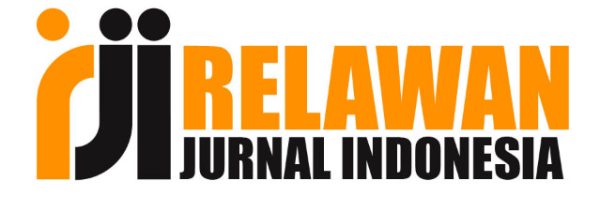Islam, Welfare Social Services and Human Dignity
A Maqasid Approach
DOI:
https://doi.org/10.52100/jcms.v3i2.142Keywords:
Islam, human dignity, maqasid, welfareAbstract
Over the last few decades, Muslim humanitarian NGOs and grassroots social work organizations have emerged worldwide, in both Muslim-majority and non-Muslim-majority societies. Unlike the 'traditional' welfare mechanisms provided by ancient Muslim institutions, these new organizations took the form of secular welfare NGOs and civil society associations, adding an 'Islamic' label to highlight their specific identity. They claim to act according to Islamic guidelines, their Muslim identity, or their faith. Although many of these Muslim organizations offer valuable and useful social services and humanitarian aid to those in need, it is common to observe practices within these organizations that contradict Islamic teachings. Based on the observation that numerous Muslim organizations inadvertently deviate from basic Islamic principles in their projects and policies, this article aims to initiate a discussion on the ways to align social work and humanitarian aid with Islamic principles. It will present examples of so-called 'Islamic-based' social services, drawn from previous sociological studies, to highlight the current situation before attempting to identify normative guidelines based on a Maqasid approach to the Islamic scriptures.
References
Asad, T. (2009). The Idea of an Anthropology of Islam. Qui Parle, 17(2), 1-30.
Auda, J. (2008). Maqasid Al-Shariah as Philosophy of Islamic Law: A Systems Approach. International Institute of Islamic Thought.
Auda, J. (2021). Re-Envisioning Islamic Scholarship: Maqasid Methodology as a New Approach. Swansea, Claritas Book.
Berque, J. (2002). Le Coran – Essai de traduction. Albin Michel.
Brodard, B. (2022). Helping Muslims or Contributing to Society? Insights into the Paradoxes of Islamic Social Work for the Excluded. In: Schmid, H., Sheikhzadegan, A. (eds) Exploring Islamic Social Work. Muslims in Global Societies Series, vol 9. Springer, Cham.
Brodard, B. (2023a). L’action sociale musulmane en Europe: Engagement communautaire, contribution caritative et activisme religieux en France, en Suisse et en Grande-Bretagne. L’Harmattan.
Brodard, B. (2023b). Social Welfare Services and Dawah in “Autochthonous” Islamic Centers in Colombia. Journal of Muslim Philanthropy & Civil Society, 7(2).
Hallaq, W. (2001). Authority, Continuity, and Change in Islamic Law. Cambridge University Press.
Hallaq, W. (2004). The Origins and Evolution of Islamic Law. Cambridge University Press.
Hallaq, W. (2009). Shari’a: Theory, Practice, Transformations. Cambridge University Press.
Ibn Ashur, M. T. (2006). Treatise on Maqâsid al-Shari’ah. The International Institute of Islamic Thought.
Kamali, M. H. (2008). Maqasid Al-Shariah Made Simple. The International Institute of Islamic Thought.
Krafess, J. (2005). L’influence de la religion musulmane dans l’aide humanitaire. Revue Internationale de la Croix-Rouge, 87(858), 327-342.
Lings, M. (1987). The Eleventh Hour. Editions. Quinta Essentia
Mittermaier, A. (2019). Giving to God. Islamic Charity in Revolutionary Times. Oakland, CA : University of California Press.
Parsell, C. & Watts, B. (2017). Charity and Justice: A Reflection on New Forms of Homelessness Provision in Australia. European Journal of Homelessness, 11(2), 65-76.
Al-Qaradawi, Y. (1999). A comparative study of Zakah, regulations and philosophy in the light of Qur'an and Sunnah. Dar Al Taqwa.
Al-Raisouni, A. (2011). Imam Al-Shatibi’s Theory of the Higher Objectives and Intents of Islamic Law. The International Institute of Islamic Thought.
Warden, R., Scourfield, J. & Huxley, P. (2017). Islamic Social Work in the UK: The Service User Experience. The British Journal of Social Work, 47(3), 737-754.
Watts, B., Fitzpatrick, S. & Johnsen, S. (2018). Controlling Homeless People? Power, Interventionism and Legitimacy. Journal of Social Policy, 47(2), 235-252.
Zysow, A., (2012). “Zakāt”, in: Encyclopaedia of Islam, Second Edition, Edited by: P. Bearman, Th. Bianquis, C.E. Bosworth, E. van Donzel, W.P. Heinrichs.
Downloads
Published
How to Cite
Issue
Section
License
Copyright (c) 2024 Journal of Contemporary Maqasid Studies

This work is licensed under a Creative Commons Attribution-NonCommercial 4.0 International License.






